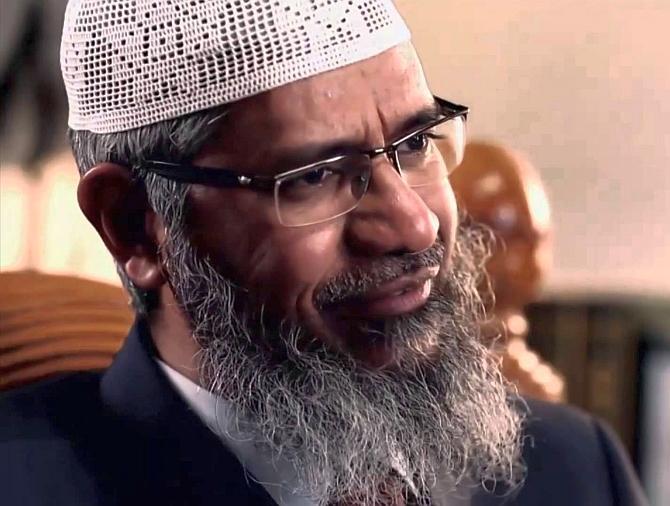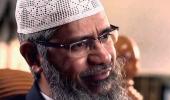A tribunal of the Delhi high court has confirmed the extension of a five-year ban imposed on Islamic Research Foundation, set up by fugitive Zakir Naik who is accused of inspiring Muslim youths in India and abroad to commit terror acts.

The IRF was first banned under the Unlawful Activities (Prevention) Act, 1967 (37 of 1967) by the central government on November 17, 2016. The ban was extended for five years on November 15, 2021.
In a notification, the Union home ministry said the central government had constituted a tribunal consisting of Justice D N Patel, chief justice of the high court of Delhi, on December 13, 2021 for adjudicating whether or not there was sufficient cause for declaring the IRF as an unlawful association.
"Whereas, the said tribunal in exercise of the powers conferred by sub-section (3) of section 4 of the said Act (UAPA), passed an order on the March 9, 2022, confirming the declaration made in the said notification," it said.
While extending the ban, the home ministry had said that if the unlawful activities of the IRF were not curbed and controlled immediately, it will take the opportunity to continue its subversive activities and re-organise its activists who are still absconding.
It had said that the central government is also of the opinion that with regard to the activities of the IRF, it is necessary to declare it an unlawful association with immediate effect.
Naik, who was born in Mumbai, fled India in the wake of July 1, 2016 bombing at a cafe in Dhaka. He is accused of spreading hatred among different communities through his Peace TV and social media networks, where he has over 20 million followers. He is currently living in Malaysia.
In that blast in Dhaka, terrorists killed over 20 people, including 17 foreigners. One of the bombers of the Bangladesh capital had said that he was inspired by Naik's speeches.
Two of the many Kerala youths, who joined the Islamic State, had said that they were attracted to the Middle-East's deadliest terror group after meeting the controversial preacher.
Naik has denied having any role in any of these incidents.
Zahran Hashim, the leader of National Thowheeth Jama'ath, the group which claimed the Easter bombings in Sri Lanka, had praised Naik and asked Sri Lankan Muslims what they could do for him.
Over 250 people, including 45 children and 40 foreign nationals, were killed in the deadly explosions in Sri Lanka on April 21, 2019, an Easter Sunday.
The home ministry had said it is of the opinion that the IRF and its members, particularly, the founder and president, Zakir Abdul Karim Naik alias Zakir Naik, has been encouraging and aiding its followers to promote or attempt to promote, on grounds of religion, disharmony or feelings of enmity, hatred or ill-will between different religious communities and groups which are prejudicial to the integrity and security of the country.
The home ministry said the statements and speeches made by Naik are objectionable and subversive and through them he has been promoting enmity and hatred among religious groups and inspiring youths of a particular religion in India and abroad to commit terrorist acts.
Naik also makes radical statements and speeches to millions of people worldwide through international satellite TV network, Internet, print and social media, it said.
The ministry said Naik's activities will disrupt the secular fabric of the country by polluting the minds of the people by creating communal disharmony, propagate anti-national sentiments, escalate secessionism by supporting militancy and some people may undertake activities which are prejudicial to the sovereignty, integrity and security of the country.
India has been pursuing with Malaysia its request for extradition of the fugitive evangelist without any success. He has permanent residency of Malaysia, which gave him shelter after countries like Britain and Canada denied him visas.
Naik's hardline interpretation of Islam earned him a distinct following but he attracted attention of security agencies as well.
There are multiple cases filed by the National Investigation Agency and the Enforcement Directorate against Naik.
After his Peace TV English, he had also launched the Urdu and Bangla versions of the channel and these were banned in many countries over allegations of radical views and hate campaign.










